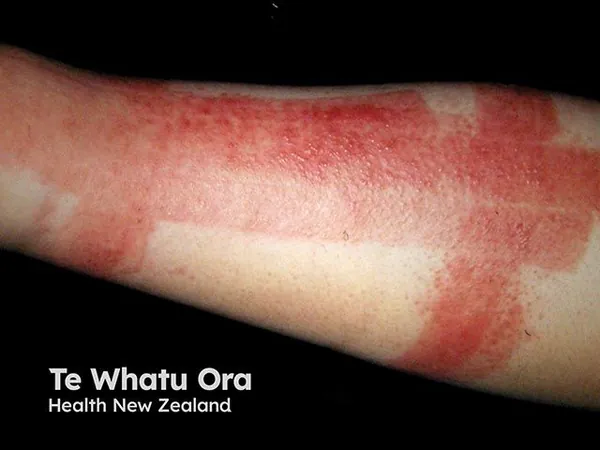
Labor Day Uncovers Hidden Allergens: The Surprising Risks You Need to Know!
2025-09-01
Author: Arjun
The Hidden Epidemic of Allergic Contact Dermatitis
As Labor Day approaches, it's time to shine a light on an urgent health issue that affects countless workers and consumers: allergic contact dermatitis (ACD). Recent case studies are revealing alarming patterns in unexpected places—from the workplace to your everyday beauty routine.
Case Study 1: The Pipe Relining Hazard
A 56-year-old technician in the pipe relining industry found himself battling severe skin reactions after his company switched from epoxy-based to acrylate-based resins. This shift, while seemingly benign, led to eyelid swelling, facial rash, and vesicles that were confirmed through patch testing as severe allergies to acrylates. Despite wearing protective gear, he faced repeated contamination, ultimately being forced to take sick leave due to the severity of his condition. This case underscores the growing significance of acrylate allergies in industrial settings, especially as usage increases.
Case Study 2: The Cosmetic Applicator Scandal
In an eye-opening case, a 41-year-old woman developed eyelid dermatitis linked to a metal applicator on her eye cream. Although the cream itself didn’t test positive for allergens, patch tests revealed her sensitivity to nickel from the applicator. This startling discovery highlights how something as ubiquitous as cosmetic packaging can be a hidden trigger for ACD, raising critical questions about regulatory oversights where products often slip through the cracks.
The Emerging Threat of Titanium Allergy
Traditionally deemed safe, titanium might not be as benign as once thought. Used broadly in industries from aerospace to medicine, titanium and its compounds are now under scrutiny due to potential allergenic risks. A recent study found that titanium ions could provoke immune responses in a surprising 5% of patients tested. This raises concerns about localized dermatitis and even systemic reactions in patients post-surgery. The findings challenge the long-held belief that titanium is entirely hypoallergenic.
A Call for Skin Safety Awareness
These revelations serve as a wake-up call for both workers and consumers. As the lines between work and life blur, allergens are lurking in unexpected places. The case studies stress the importance of regulatory vigilance in both occupational settings and consumer products. Comprehensive testing and awareness of potential allergens—like nickel in cosmetics or acrylates in industrial materials—are critical for maintaining skin health.
Conclusion: Prioritizing Safety in a Modern World
This Labor Day, as we celebrate worker rights and health, let’s not forget the hidden dangers that threaten our well-being. The experiences of the pipe relining technician and the woman affected by her beauty routine highlight the urgent need for improved regulations and awareness around allergens. Whether in the workplace or at home, protecting our skin is crucial for our overall health.



 Brasil (PT)
Brasil (PT)
 Canada (EN)
Canada (EN)
 Chile (ES)
Chile (ES)
 Česko (CS)
Česko (CS)
 대한민국 (KO)
대한민국 (KO)
 España (ES)
España (ES)
 France (FR)
France (FR)
 Hong Kong (EN)
Hong Kong (EN)
 Italia (IT)
Italia (IT)
 日本 (JA)
日本 (JA)
 Magyarország (HU)
Magyarország (HU)
 Norge (NO)
Norge (NO)
 Polska (PL)
Polska (PL)
 Schweiz (DE)
Schweiz (DE)
 Singapore (EN)
Singapore (EN)
 Sverige (SV)
Sverige (SV)
 Suomi (FI)
Suomi (FI)
 Türkiye (TR)
Türkiye (TR)
 الإمارات العربية المتحدة (AR)
الإمارات العربية المتحدة (AR)